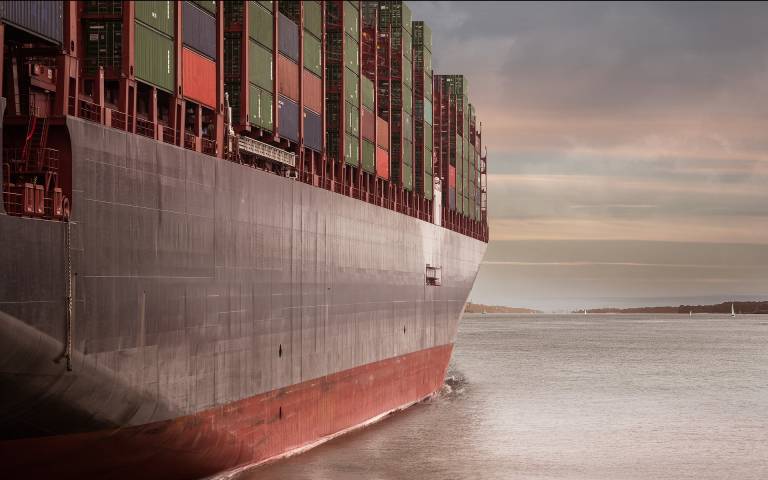Zero Emission Vessels: ‘What needs to be done?’ asks Sustainable Shipping Initiative
22 May 2018
Multiple fuel options are on the table to reach zero emissions but all have associated issues which need to be explored to identify the best options, and ensure they mature and become available

The report, authored by Lloyds Register and UMAS, was geared to the needs and requirements of SSI members, who are mainly involved in deep-sea trades with container ships, bulk carriers and tankers.
Shipping faces huge challenges in finding affordable zero-emission fuels, against a background of a sustained downturn in many parts of the sector, and a global requirement to keep transport costs low. In this environment, biofuels currently present the most affordable option for shipping, though great challenges remain in relation to the future availability, scale of production and sustainability of biofuels.
The report also examines electric power and hydrogen fuel cells, and takes note of the upstream CO2 emissions, which will need to be very low as these fuels will be judged on a “well to wake” whole lifecycle perspective. With development of other sector’s low carbon technologies and energy production’s decarbonisation it is expected that very low upstream emissions associated with these fuels will be achievable.
Dr Tristan Smith, Reader at UCL Energy Institute: “The shipping industry requires rapid technological changes to enable zero-emission ships: moving from fossil fuels to a combination of electricity (batteries), renewable fuels derived from hydrogen, and potentially bioenergy”
Dr Carlo Raucci, Principal Consultant at UMAS: “This study highlights the drivers, benefits and challenges of the most promising technologies. The shipping industry has a unique opportunity to contribute to the large potential for improvements of such technologies and aim for a profitable zero-emission service.”
About UMAS
UMAS is a sector-focused commercial advisory service that draws upon the world-leading shipping expertise of the UCL Energy Institute, combined with the advisory and management system expertise of MATRANS. In combination, UCLC, the UCL Energy Institute and MATRANS operate under the UMAS branding. For more details, visit www.u-mas.co.uk.
UMAS undertakes research using models of the shipping system, shipping big data (including satellite Automatic Identification System data), and qualitative and social science analysis of the policy and commercial structure of the shipping system. Research and consultancy is centred on understanding patterns of energy demand in shipping and how this knowledge can be applied to help shipping transition to a low-carbon future. UMAS is world-leading in two key areas: first, using big data to understand the trends and drivers of shipping energy demand and emissions; and, second, using models to explore ‘what ifs’ for future markets and policies.
About Lloyds Register
Lloyd’s Register (LR) is a global engineering, technical and business services organisation wholly owned by the Lloyd’s Register Foundation, a UK charity dedicated to research and education in science and engineering. Founded in 1760 as a marine classification society, LR now operates across many industry sectors, with some 8,000 employees in 78 countries.
LR has a long-standing reputation for integrity, impartiality and technical excellence. Its compliance, risk and technical consultancy services give clients confidence that their assets and businesses are safe, sustainable and dependable. Through its global technology centres and research network, LR is at the forefront of understanding the application of new science and technology to future-proof its clients’ businesses.
About the Sustainable Shipping Initiative
The Sustainable Shipping Initiative (SSI) is an independent charity, comprised of ambitious leaders spanning the whole shipping value chain from charterers and ship owners, to class societies and technology companies.
 Close
Close

